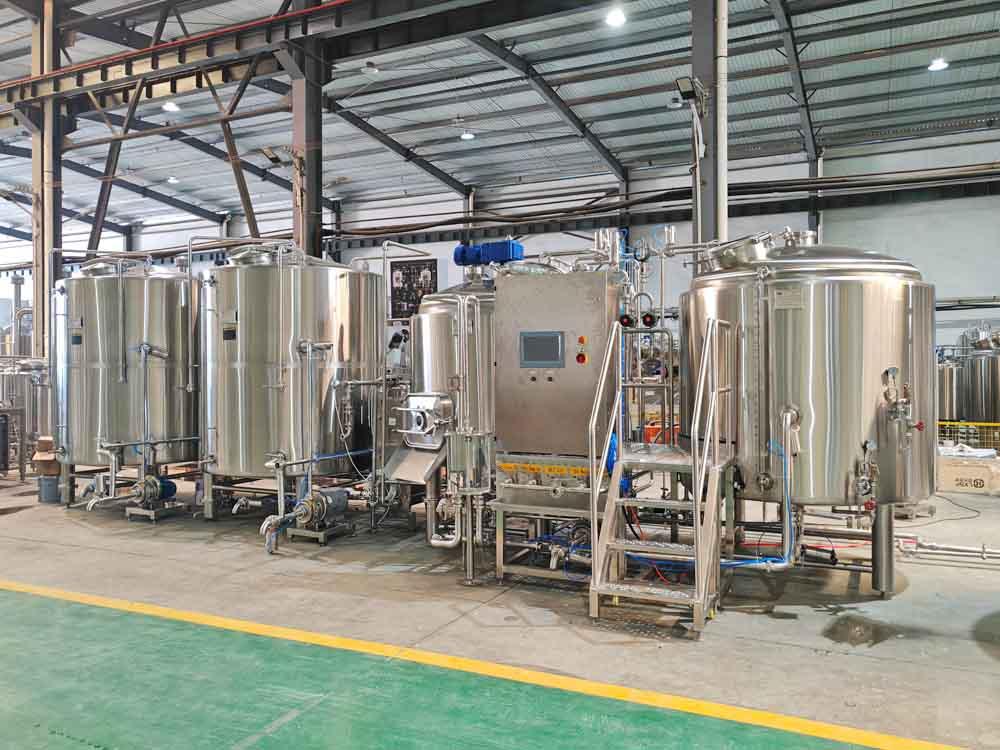Live your dream How to start a craft brewery
- Feb 18, 2022
- 156
- tiantai
You’re with friends at your favorite craft brewery enjoying some tasty ales when it hits you: Why not turn your love of great beer into a profession and start a brewery?
If you’re serious — and not just buzzed — understand that it takes a lot of planning, money and patience to make this dream a reality. Starting a small business is already difficult, and breweries are highly capital-intensive businesses that come with additional legal and permitting requirements.
But with sober planning, creative financing and tenacity, you could create your own neighborhood watering hole. Here’s some advice to get you started:
How much does brewery equipment cost
How much you’ll pay for brewing equipment ultimately depends on the size of your brewery and whether you buy new or used. You can contact with [email protected] to get detailed brewery offer.
Your brewery needs essential equipment: kettles, kegs, boilers, bottling and canning lines, conveyors, cooling systems, storage tanks, fermentation tanks, filters and beer-labeling machines, piping and tubing, refrigeration equipment, cleaning equipment, waste treatment systems and tap handles.
Although you can get the cheapest equipment for reasonable prices, if you purchase equipment with less capacity and your brewery turns out to be a success, you can run into problems because the system will be difficult and costly to modify, says Kolada, who recommends taking a more conservative approach when crafting your budget.
“If you’ve done your homework and details, and you think your project will cost extra, I would highly recommend that you up that by about 50%, just for the unforeseen, and see if your business plan would still work under that scenario,”

Location and construction
Of course, your brewery also needs a home. The monthly cost of rent depends heavily on your location and the size of the building. You may need to come up with the first month’s rent plus a security deposit for the landlord when you sign a lease. And you’ll also probably need to do construction on the building to get it fit for the brewery.
“You have to consider plumbing, electric needs, if the ceilings are high enough — you may have to tear out existing concrete slabs and repour them so the water drains properly — there’s a whole laundry list of things that goes into it,” says Kolada, who added that as a general rule of thumb, you should take your equipment costs and, double them, and that’s what you’re going to spend on construction for your building.
How to finance the startup costs
So where can you get the money?
Friends, family and inner networks: This is the most popular route for first-time brewers seeking finance, according to Kolada. “Just go to those you know best, show enthusiasm and talk people out of their money,” he says. Here are some dos and don’ts of asking family and friends for startup capital.
Home-equity loan: If you have substantial equity in your home or other real estate, taking out a home-equity loan or line of credit is one potential source of funds.
Retirement accounts: Tapping into 401(k)s and individual retirement accounts (IRAs) to fund your brewery can be a risky strategy, as you are putting your retirement funds at risk. You’ll also face fees and taxes. The IRS allows a financing strategy known as a Rollover as Business Start-Up to avoid taxes and penalties, but the transaction is fairly complex, so hiring a professional is likely a smart move.
Reward crowdfunding: This is the process of raising small amounts of money online from a large group of individuals, in support of a project or venture. Popular crowdfunding websites include Kickstarter, Indiegogo, GoFundMe and Crowdrise.
Equity crowdfunding: This type of crowdfunding is similar to reward crowdfunding, except you are giving up a percentage of ownership in your company instead of rewards.
If you’re serious — and not just buzzed — understand that it takes a lot of planning, money and patience to make this dream a reality. Starting a small business is already difficult, and breweries are highly capital-intensive businesses that come with additional legal and permitting requirements.
But with sober planning, creative financing and tenacity, you could create your own neighborhood watering hole. Here’s some advice to get you started:
How much does brewery equipment cost
How much you’ll pay for brewing equipment ultimately depends on the size of your brewery and whether you buy new or used. You can contact with [email protected] to get detailed brewery offer.
Your brewery needs essential equipment: kettles, kegs, boilers, bottling and canning lines, conveyors, cooling systems, storage tanks, fermentation tanks, filters and beer-labeling machines, piping and tubing, refrigeration equipment, cleaning equipment, waste treatment systems and tap handles.
Although you can get the cheapest equipment for reasonable prices, if you purchase equipment with less capacity and your brewery turns out to be a success, you can run into problems because the system will be difficult and costly to modify, says Kolada, who recommends taking a more conservative approach when crafting your budget.
“If you’ve done your homework and details, and you think your project will cost extra, I would highly recommend that you up that by about 50%, just for the unforeseen, and see if your business plan would still work under that scenario,”

Location and construction
Of course, your brewery also needs a home. The monthly cost of rent depends heavily on your location and the size of the building. You may need to come up with the first month’s rent plus a security deposit for the landlord when you sign a lease. And you’ll also probably need to do construction on the building to get it fit for the brewery.
“You have to consider plumbing, electric needs, if the ceilings are high enough — you may have to tear out existing concrete slabs and repour them so the water drains properly — there’s a whole laundry list of things that goes into it,” says Kolada, who added that as a general rule of thumb, you should take your equipment costs and, double them, and that’s what you’re going to spend on construction for your building.
How to finance the startup costs
So where can you get the money?
Friends, family and inner networks: This is the most popular route for first-time brewers seeking finance, according to Kolada. “Just go to those you know best, show enthusiasm and talk people out of their money,” he says. Here are some dos and don’ts of asking family and friends for startup capital.
Home-equity loan: If you have substantial equity in your home or other real estate, taking out a home-equity loan or line of credit is one potential source of funds.
Retirement accounts: Tapping into 401(k)s and individual retirement accounts (IRAs) to fund your brewery can be a risky strategy, as you are putting your retirement funds at risk. You’ll also face fees and taxes. The IRS allows a financing strategy known as a Rollover as Business Start-Up to avoid taxes and penalties, but the transaction is fairly complex, so hiring a professional is likely a smart move.
Reward crowdfunding: This is the process of raising small amounts of money online from a large group of individuals, in support of a project or venture. Popular crowdfunding websites include Kickstarter, Indiegogo, GoFundMe and Crowdrise.
Equity crowdfunding: This type of crowdfunding is similar to reward crowdfunding, except you are giving up a percentage of ownership in your company instead of rewards.




